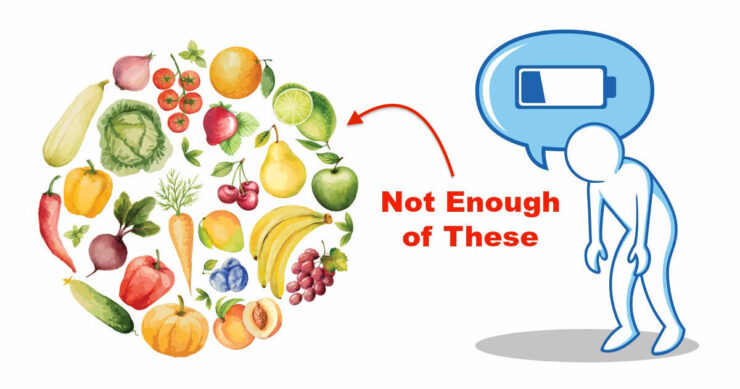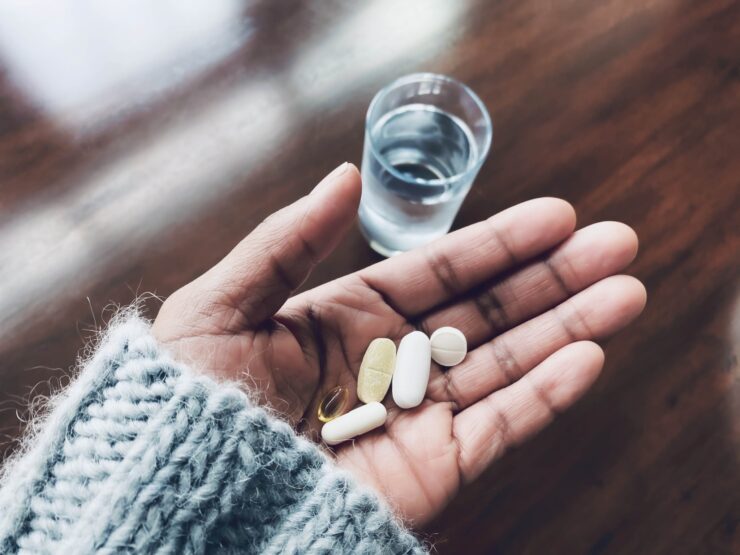Vitamins are nutrients required by the body in small quantities for essential processes such as releasing energy from digested food and creating red blood cells. Eating a healthy diet is important, but not every vitamin can be found in food – especially not the “good stuff” like vegetables and fruit that we’re told we should eat all the time! Many people aren’t even aware of how close they are to falling ill because of their lack of vitamins and minerals.
Why should I take vitamins?
Taking a daily multivitamin will help ensure you’ve taken your recommended daily allowance (RDA) of multiple different vitamins and minerals. You’ll also need certain vitamins before you become deficient enough to feel any symptoms – such as scurvy if you don’t have enough vitamin C, or beriberi if you don’t have enough vitamin B1! It’s also possible to take too much of certain vitamins with various unpleasant results.
Who is at risk of being vitamin deficient?

Some people are more likely to be lacking in essential vitamins and minerals, including teenagers who may restrict their diet for a number of reasons. Teenagers need specific nutrients for physical growth and development, so can benefit from taking daily multivitamins that contain an RDA of many different vitamins and minerals. From the age of about 11 years old, girls begin menstruating; this means they gradually become less efficient at absorbing iron (or iron needs increase), which makes them more to anemia. Iron deficiency anemia is the most common nutritional deficiency.
What are some signs of vitamin deficiencies?
Some of the main signs of vitamin deficiencies, aside from eating a poor diet lacking in vitamins and minerals, include fatigue (tiredness), muscle weakness, irregular heartbeat (arrhythmias), and impaired growth. If you experience any one or more of these symptoms it may be worth visiting your GP for further testing to determine which vitamin or minerals you’re deficient in.
What should I look for on a multivitamin label?
When choosing which daily multivitamin to take look for those containing at least 100% of the RDA of all essential vitamins and minerals, including folic acid (vitamin B9), calcium, iron, and zinc, as well as vitamin A, C, and D.
What vitamins should I take?

If you are eating a balanced, healthy diet, chances are that you do not need to take vitamins. Healthy meals generally include whole grains (such as rolled oats or brown rice), lean protein (fish, chicken, beans), and fresh fruits and vegetables. If you feel like your diet is insufficiently nutritious, adding a multivitamin is an option. However, be sure to consult your doctor before taking any dietary supplements to make sure they don’t interfere with any medications you are already taking or cause any adverse reactions.
Vitamins for different purposes
Multivitamins are not one-size-fits-all, so it’s important that you talk to your family’s trusted GP about what vitamins are best for your particular needs. For example, if you have trouble falling asleep, taking vitamin B2 before bed could help. Vitamin D will keep your bones strong and calcium builds up the structure of your bones over time. You can also take vitamin C during the cold season to prevent catching a bug! There are many kinds of multivitamins, so you should talk to your doctor about what is best for you.
Also, each of these vitamins has different properties, so some may help your skin stay clear while others aid in reducing stress. While taking several multivitamins at once can be convenient, it’s important to know that not all vitamins are absorbed by the body equally. A vitamin might have a low impact if only taken once a day, but if taken with other supplements it could cause adverse effects.
When should I take these?

Adults usually take their daily dose of vitamins before or after lunchtime, as they are easier to absorb on an empty stomach. Children can take them whenever they like! Remember, consult your GP for more information.
Do I need to take them every day?
It depends on what you are taking. Plant-based multivitamins (such as vitamin C) can be taken daily, while others like vitamin B or calcium should be taken once a day at most. These vitamins usually come in blister packs of 30 tablets, so they’re easy to store and remember. Talk to your doctor if you have any concerns about this or other aspects of taking supplements!
Where do I get these?

You can buy most vitamins over the counter in pharmacies or grocery stores. However, some require a prescription from your GP. If you feel you would benefit from these supplements, ask your GP for advice on which ones are best for you! will know what is best for you to take, and they will also ensure that any medications you are already taking don’t conflict with the supplements.
Is it bad to not take them?
If you have a balanced diet with lots of fruits and vegetables then you probably do not need to take vitamins on top of that. It’s important to speak with your GP first, especially if you’re worried about any deficiencies in your diet. In addition, keep in mind that while multivitamins can generally improve your health, some people have adverse reactions or experience complications when taking certain kinds of dietary supplements. Always talk to a medical professional before trying new supplements!
Can I drink alcohol with them?

Not really! It might be a good idea to save your vitamin intake for another time, it’s important to remember that vitamins and alcohol do not go together. Alcohol can reduce the number of vitamins you absorb from food, so that means that even if you have a healthy diet you may be lacking in some.
Conclusion
If you are not getting all of the vitamins and minerals from your diet that you should be, discuss with your GP about taking a multivitamin supplement to make up for any dietary deficiencies. There are many kinds of multivitamins, so it’s important to talk to a medical professional before trying anything new!
Vitamins are so important, and taking just one a day can be part of an easy, convenient, and healthy supplement routine. Each vitamin has different properties as well as different requirements, so it’s important to speak with your doctor before beginning any supplementation regimen.
Happy supplementing and taking care of yourself the best way you can!

